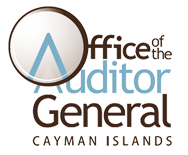COVID-19 has impacted Government finances by at least $333 million
The report “The impact of the COVID-19 pandemic on Government finances: Update to March 2022” was issued today by the Office of the Auditor General (OAG).
The public interest report provides an estimate of the total financial impact to the Government of the COVID-19 pandemic in the two years from March 2020 to March 2022.
The Auditor General says “COVID-19 has been a major world-wide pandemic that has had a significant impact on global health, societies and economies. The Cayman Islands has not been spared from this. In mid-March 2020, the Government started to take a number of actions to suppress the spread of the disease, and many of these have continued.” Ms. Winspear adds “I along with the rest of the citizens of the Cayman Islands welcome the actions taken by successive Governments to suppress the spread of the disease. There is no doubt that Governments have succeeded in preserving life during the pandemic. However, the actions taken, while sheltering residents from the worst effects of the virus for a significant period of time, have had a substantial financial impact, which we estimate to be at least $333 million over the two years to March 2022.”
The report highlights that by 30 September 2021, the total financial impact of the Government’s response to the pandemic was around $248 million. Of this total, the Government spent $132 million and had foregone revenues of at least $116 million.
“In the 18 months to 30 September 2021, the financial impact of the Government’s response to the pandemic was almost a quarter billion dollars. The Government spent $132 million on COVID-related activities and missed out on revenues of at least $116 million.” The Auditor General adds “The actions taken by the Government, particularly the closure of the border, had a huge impact on the tourism industry, and this has contributed to the financial impact. Half of the additional expenditure was to support individuals and businesses, particularly those in the tourism sector, and the majority of foregone revenues were also because of lost charges and fees from tourism.“
The report also states that from 1 October 2021 the financial impact has continued and is estimated to be a further $85 million. The Government has incurred and committed an additional $70 million in expenditure and has continued to forego revenues of around $14.6 million.
Ms. Winspear says “The Government has continued to incur costs and forego revenues over the six months to March 2022, when the borders fully reopened and tourists returned. These actions could cost an additional $70 million. As well as the continued loss of revenues from the tourism sector.”
The Auditor General adds “The financial consequences of COVID-19 could be with us for some time. The Government continues to manage the spread of the virus through testing and vaccinating people, and it could take some time for the tourism sector to recover fully to pre-pandemic levels. We will continue to monitor the additional costs.”
More information about the report can be obtained by contacting Sue Winspear at (345) 244-3201 or Angela Cullen, Deputy Auditor General (Performance Audit) at (345) 244-3220.
Notes to the editor
- Public Interest Reports address issues that have been identified during an audit or which a report has been requested during the year. They are used when there is a matter of public interest that should be reported to the Parliament but where a full audit is not necessarily required. Unlike performance or financial audit, public interest reports do not seek to provide an opinion or recommendations.
- In July 2020, the OAG published its first report “Overview of the Government’s costs in relation to COVID-19”. That report provided a position statement of additional expenditure incurred as a result of the pandemic by 19 June 2020. This is the second public interest report by the OAG on the costs to the Government of the COVID-19 pandemic and provides an estimate of the total financial impact in the two years from March 2020 to March 2022. The findings from this latest report will feed into our upcoming report on Long-Term Financial Sustainability.
- Many of the figures in the Public Interest Report have not been audited, that is, they have not been verified whether they are valid COVID-19 expenditure or whether the monies have been disbursed in line with relevant policies and procedures or agreed criteria. Some of the expenditure was audited as part of our 2020 financial statements’ audits. However, none of the costs for 2021 had been audited at the time of preparing this report, and figures for 2022 are estimates. All of our estimates of foregone revenues are based on unaudited government figures and assumptions made by the OAG.
- The OAG used information from the Cayman Islands Government’s financial system and provided by the Ministry of Finance and Economic Development, Health Services Authority and Cayman Islands Airport Authority. The OAG categorised the financial information received into the flowing seven categories of activity:
- Healthcare
- Quarantine and social distancing
- Social assistance to individuals
- Support for business
- Education
- Public sector personnel costs; and
- Other costs.
